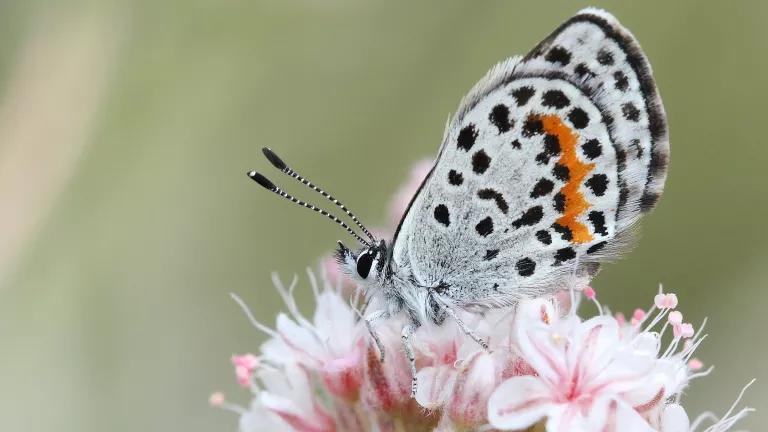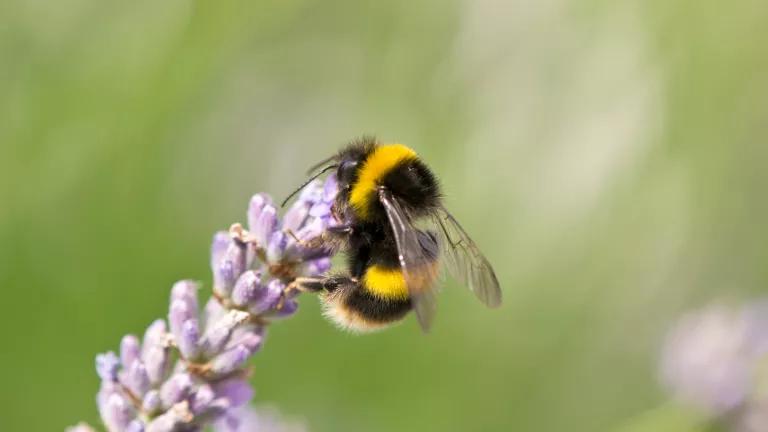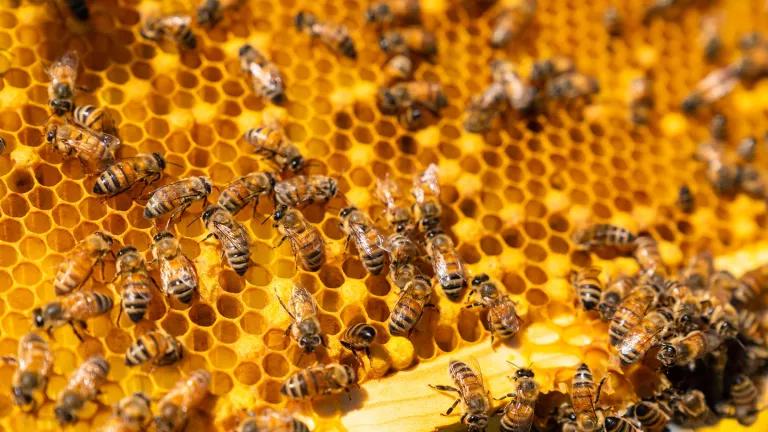NRDC v. California Department of Pesticide Regulation
Case Status
Last Update

A square-spotted blue butterfly
Pesticide contamination presents grave threats to human health and the environment. That is especially true of neonicotinoid pesticides (neonics), widely used insecticides that are among the most ecologically disastrous pesticides since DDT. In California, neonics have been detected in more than 90 percent of water samples in agricultural areas—indicating ubiquitous contamination of the state’s environment. Widespread neonic contamination not only decimates pollinators, aquatic insects, and other wildlife; these neurotoxins are increasingly viewed as a threat to human health.
Neonics are most commonly used as seed coatings or “treatments” on crop seeds like corn, cotton, wheat, sugar beet, lettuce, and countless other crops. These "treated seeds" are ubiquitous. In the United States, essentially all corn and most cotton is grown from a neonic-treated seed, amounting to tens of millions of acres. In the past 25 years, researchers estimate that the proliferation of neonic-treated seeds has made U.S. agriculture up to 48 times more acutely toxic to insects.
In California, treated seeds are not regulated as pesticides. This means that none of the rules designed to track use of pesticides, limit their impacts on human health and environment, and periodically review their harms apply to these widely used products. One result of this loophole is that treated seeds can be brought into California and used, even if they are coated with chemicals not reviewed nor approved by the California Department of Pesticide Regulation (DPR).
On February 17, 2023, NRDC and our partners filed a lawsuit in California state court, challenging DPR's policy that allows treated seeds to go unregulated. Specifically, we argued that DPR adopted and applied this policy for decades without undertaking rulemaking procedures required under California law to ensure reasoned decision-making and public input in regulatory processes.
Victory in the case will not only press DPR to reconsider its disastrous policy and develop a protective regulatory program for treated seeds; it will also set an important precedent to address this issue nationwide, where treated seed use remains similarly unchecked and unregulated in every other state.
The case is currently set for trial in May 2024. Check back for updates on this potentially groundbreaking case.
Case Documents
Complaint, February 17, 2023 (PDF)Related Content

NRDC Sues to Close Huge California Pesticide Loophole

Neonicotinoids 101: The Effects on Humans and Bees
